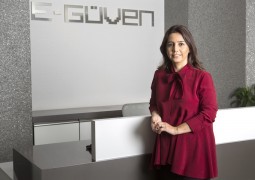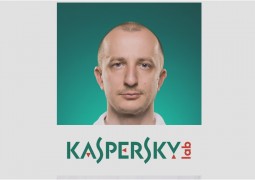Adobe’s Mobile Strategy – Thomas Balduff
by 0

Adobe provides solutions to develop apps device and platform independent
Thomas BALDUFF
 UXistanbul Conference 2016 took place in Istanbul on 23rd February 2016. ThePercept made an interview with keynote speaker Facebook’s Product Design Manager Jonah Jones.
UXistanbul Conference 2016 took place in Istanbul on 23rd February 2016. ThePercept made an interview with keynote speaker Facebook’s Product Design Manager Jonah Jones.
What is Adobe’s mobile strategy?
It’s a very good question because we talked about it yesterday. In Barcelona, we announced at Mobile World Congress a new mobile offering, which is a new set of products and a new strategy. The idea is that we help to organizations to build apps to manage them and to monetize them. It is important to have just one development circle and hopefully press one button and then you get the apps in different operations systems handy and available. We extend this to press a button and the apps will be pixel perfect on each device even it is a tablet or a smartphone in a different screen size. This works with the integration of the Adobe marketing cloud and will solve the digital assets. We pick the right asset from this digital assets management and build this into the app and app knows where is wrong and show the right picture.
In a statistic, I saw tablets are dying. What is your comment on it?
We support IOS, Android, Blackberry and Windows. Even if the tablets are dying there will be a huge need to build apps and measure and generate analytics but I do not believe that tablets will die. I personally do not like a smartphone. Tablets are much better to make extensive reading for huge contents. For traveling it may be wise to use smartphones but at home definitely people will prefer to use tablets. It’s much more convenient, even my dog likes it. There is an application that he can play with. The phones are getting bigger but then it was hard to use. I personally refuse to use a big smartphone. In Germany, there are lots of people that stopped buying every two years a laptop and prefer to use the tablet.
Is not it still hard to use tablets for business purposes? Sometimes you need to connect to VPN, different systems etc.
I met the CEO of Salesforce.com at an event in Munich last year and he explained to me he runs the whole Salesforce Organization based on his tablet. He can access VPN. I can do it also on my tablet as well. There are possibilities available.

What’s your strategy on Internet of Things (IoT)?
There are lots of products like teeth brush connected to Wi-Fi. It is not a use case for me. The machine shall be intelligent. If you have an intelligent fridge which recognizes the items and tells you with a message that you are running out of milk or cheese, then it is nice. I would like to go to tablet or smartphone and get this info via an app. When I go to the market, I want to be able to learn what is missing at the home. This will happen in future.
How soon will it happen?
Sooner than we think, in the next three years, I can say. I am working with on those topics all over the German manufacturers. They come faster than you think. At first, they will be expensive but there is a use case. Internet of Things is interesting for me when the machine answers your questions.
Would you give some other example that’s will inspire us in the near future?
There is today available things for example in your car. I would like to have a car that recognizes -5 degrees and at 5 o’clock in the morning and the window is frozen. The heater needs to start. Maybe it connects to the internet and have a look at the weather channel and get the information in one hour it will be ten degrees, then it does not start heating. Then it makes its own decision. So you can go to your warm car. In the labs of BMW, it is possible. I think it is a use case, which is really very useful. You went on a travel, when you come home after two weeks you find home warm or cooled. You will be able to do it with an app remotely, which will be part of our lives.
What do you think of the social effects of those improvements in the technology?
I’m a little bit nerd but an easy adapter. The first thing I will buy will be the robot that cleans the floor. The second thing will be an automated wash machine, which also dry the staff with a connection to my smartphone. So, when I go somewhere, I want to know when starts and finishes. These things will ease my life and help me avoid boring things. A gardener robot would be very convenient. So I will not need to spend hours in the garden on a Sunday afternoon, instead of it I may watch soccer.
There’s a statistic saying that in USA people are using mobile devices three hours per day, people are watching television five hours a day. Are mobile devices taking over the television?
I don’t think that’s it at the tablets that are taking over the TV. If I go to your house in the USA, I see that the TV is on all the time. A lot of people are using mobile devices besides to TV. It’s the same in Germany. We have the samples of the second screen and we have some shows that you interact. You send SMS or comments. I think this is a logical combination.
What do you think of the interaction between human and machine, the singularity?
How I use the technology is on the level of getting the advice. It is just like the navigation system. Sometimes people are following the route even they hear on the radio that there is a traffic jam. It’s as a way of collecting information as the intellectual fridge I mentioned. Those changes are a paradigm change. We interact with the machine.
Do you think it is tiring to interact all those devices all the time?
No, I don’t think so. They help and spare me time to play with my lovely dog.
Thank you very much.
You are welcome.





